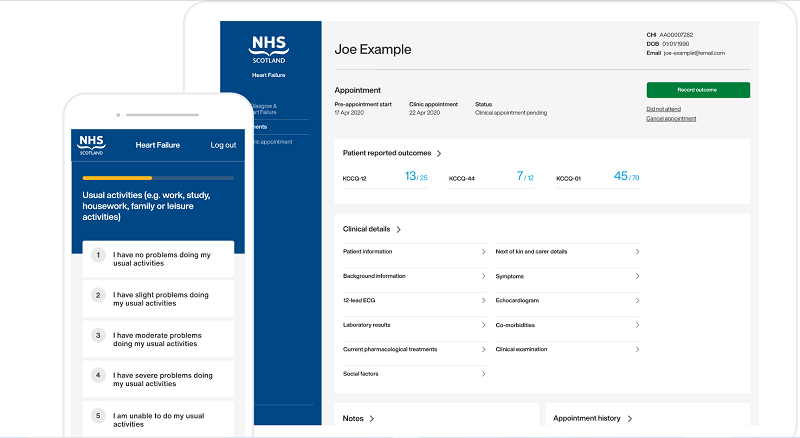Digital healthcare platform, Lenus Health, and medtech start-up, Us2.ai, have partnered to fight against heart disease by improving patient access to echocardiograms in the UK.
Early diagnosis and initiation of heart failure treatment reduces the risk of hospitalisation and death, but the diagnostic pathway has lengthy waiting times across the NHS, with NHS England statistics showing that, at the end of September 2022, 76,291 people in England had been waiting more than six weeks for an appointment.
Through their partnership, Lenus and Us2.ai aim to help tackle these longstanding backlogs, which have been worsened by the impact of COVID-19.
The firms have signed an agreement to operationalise US2.ai’s CE marked echocardiogram viewing and measurement tools within the Lenus platform to provide a one-stop digital heart failure diagnostic service.
The service supports a hub-and-spoke model where care professionals are able to deliver ECHO and ECG diagnostic testing in community settings while enabling consultant cardiologists to review all the clinical data collected in a single dashboard and record the diagnostic outcome without the need schedule an appointment with the patient.
“Our partnership demonstrates the utility of the Lenus platform to take innovative CE-marked AI-enabled devices and integrate them into a digital pathway to provide clinical decision support, speed up diagnosis for patients, and address backlogs,” said Lenus chief executive, Paul McGinness.
By delivering tech-enabled diagnosis and management of long-term conditions like heart failure and COPD, Lenus Health is well placed to operationalise leading AI tools and create a paradigm shift in care that takes it out of acute settings and puts healthier patients back in their communities
“Treatment can be initiated sooner and will help reduce the number of patients admitted to the emergency department, where 80% of heart failure diagnoses in the UK are made today.”
Us2.ai co-founder and chief executive, James Hare, added: “Us2.ai democratises access to echo, processing complete echo reports, with zero clicks, in under two minutes.
“We’re working hard to automate the fight against heart disease and make long echo wait times, human variability, and missed diagnoses a thing of the past.”
Lenus’s platform is being used in the ongoing Optimised Pathway for Early Identification of Heart Failure in the Community (OPERA) study, which is examining how the introduction of innovative digital and AI techniques can improve access to heart failure diagnostic services in Scotland
Reducing wait times
Lenus’s platform is being used in the ongoing Optimised Pathway for Early Identification of Heart Failure in the Community (OPERA) study, which is examining how the introduction of innovative digital and AI techniques can improve access to heart failure diagnostic services in Scotland.
Our partnership demonstrates the utility of the Lenus platform to take innovative CE-marked AI-enabled devices and integrate them into a digital pathway to provide clinical decision support, speed up diagnosis for patients, and address backlogs
During the study, patients suspected of diagnostic heart failure attend a single clinic appointment to undergo a bank of tests including electrocardiogram (ECG) heart tracing, echo ultrasound heart scan, and blood-based biomarkers.
Full results of the collaboration between Lenus, AstraZeneca UK, NHS Greater Glasgow & Clyde, the University of Glasgow, and West of Scotland Innovation teams are expected in early 2023.
However, results of a pilot at NHS Louisa Jordan in the first quarter of 2021 found the wait time for heart failure diagnostic tests was reduced from more than 12 months to just six weeks using the Lenus Heart Failure Diagnostic service.
“In the OPERA project, we saw how the echo AI-assisted report developed by Us2.ai could be used to further improve heart failure diagnostic efficiency,” said McGinness.
“By delivering tech-enabled diagnosis and management of long-term conditions like heart failure and COPD, Lenus Health is well placed to operationalise leading AI tools and create a paradigm shift in care that takes it out of acute settings and puts healthier patients back in their communities.
